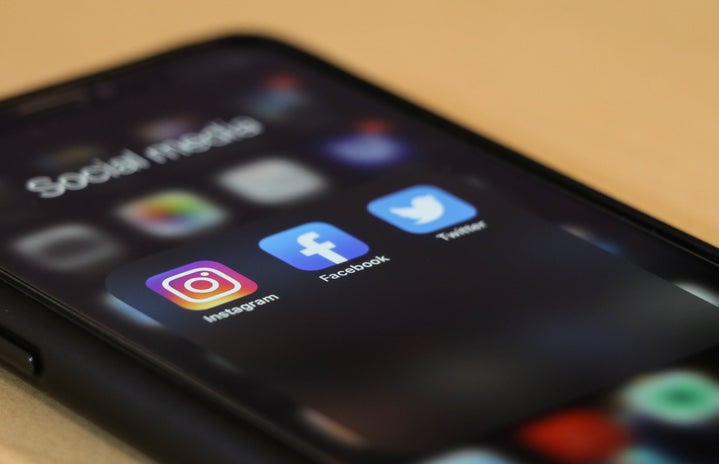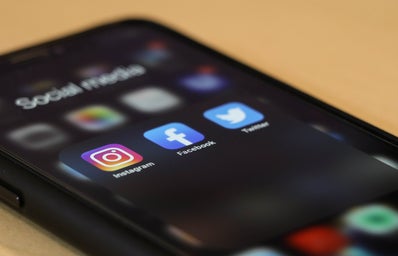Since the start of this pandemic, we have been introduced to new content that has shaken up our lives every month. I mean seriously, first Carol Baskin and now this?
“The Social Dilemma” is a terrifying and eye-opening documentary by Jeff Orlowski. It asks us fundamental and existential questions about the ways our phones affect our lives. From this astounding documentary, we learn that our brains are being manipulated and rewired by algorithms that hold every inch of our attention and completely disorient our ideas about the world, ourselves and each other. While there have been many impressive documentaries in the past surrounding social media, this one has an advantage of its own. The documentary features top executives from Twitter, Facebook and Pinterest, providing us with an in-depth understanding of how the technology works.
There are six important things to learn from this movie, something I believe that every individual should think about whenever they turn on their phones or see a notification pop up on their screen.
1. We have started using our phones as a digital pacifier
As teens and adults, we have slowly lost the ability to calm and soothe ourselves with real-world activities, relationships and surroundings. Instead, we deal with our struggling emotions by using social media as a distraction. We forget to allow ourselves to process our emotions because we are constantly surrounded by things that can distract us.
2. We have built our lives around a sense of perfection that we have to adhere to because social media tells us to
Social media has led to the rise of many mental health concerns, but the most problematic is the issue of body image. Every time we turn on our phones, we’re attacked with posts that give us a false sense of reality. We see girls with perfect bodies, hot boyfriends and fun friends, instantly making us feel self-conscious. It creates unrealistic standards of beauty and makes us believe that everyone’s life is perfect, except for ours, which as we all know is simply not true. Everyone on social media only posts the highlights of their lives, we never get to see the downfalls of others. This creates false expectations in our heads, stopping us from seeing people for who they truly are.
3. Social media and fake news have created the widest polarization in political ideologies we have ever seen
In the past two decades, the rise of social media has also led to the rise of fake news. Companies like Facebook and Twitter have created “filter bubbles” that expose us only to the content we already agree with. By selecting preferred news sites and seeking advice from people with similar political views, we have forgotten how to understand the other side. It has caused a wide polarization in our society, fueling more hate.
4. Companies use our data to create models of us; the more data they acquire, the more accurate their model of us is
Throughout the documentary, we see this model representation of ourselves that starts to look more and more like us throughout the movie. The companies and software-running algorithms use our data to create models of us to fully portray who we are. The company that builds the most accurate model also ends up winning their business model. This representation of our individuality almost seems a little too Matrix-like for me.
5. Even experts who built this technology get addicted to it
Experts who created the service and know about all the work and manipulation that goes behind it still get addicted. Many have to train themselves to turn off their notifications and not take their phones to the bedrooms. Some have even declared that they do not allow their kids to have social media at all.
6. The only way to fix it is with better regulation
An important thing the movie stresses at the very end is that the only way to fix this problem is with better regulation. By demanding responsibility from corporations that threaten our communities and democracies, we can get a better hold of the content being fed to us.
It is clear from watching this film that the intention behind these social media sites was not to cause harm. They were created to bring innovation into the world. However, their main focus now is profit. The refreshing feature on social media apps has been created with the psychology of slot machines behind them. Every time you open Instagram or Twitter and swipe down to refresh your page, it is essentially like using a slot machine at a Vegas gambling den. We have become addicts, completely giving away our lives to these machines and forgetting about the bigger problems. It is important to look around every once in a while. We forget to be in the moment when we’re worried about every small sound that escapes out of our back pocket.
But for now, let me ask you: how many notifications did you have flash on your screen while you were reading this article?



